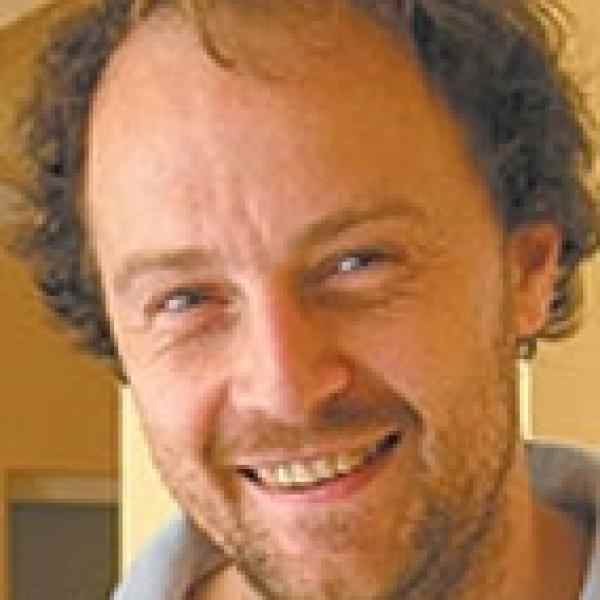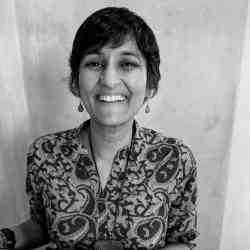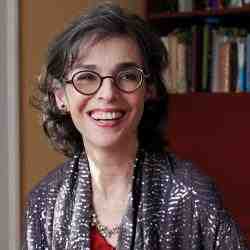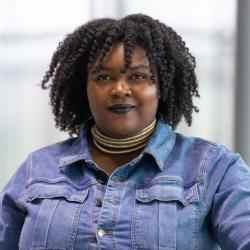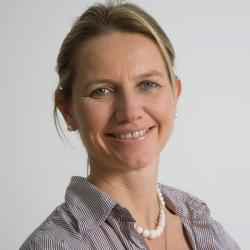Introduction
François Taddéi is breaking away from the elitist, top-down, and conservative model of the French education system that fails to prepare students to innovate and meet the complex challenges of a changing world. François is reinventing high school and college science education and laying the ground for a renewed, democratized knowledge industry. His integrated model marries a variety of disciplines, taps into private investments, and attracts the most motivated students who acquire, invent, and apply knowledge directly to groundbreaking projects. This research-based architecture is inspiring institutions across the French system and influencing education internationally.
The New Idea
Through an interdisciplinary, research-based and experiential approach, François is creating a university architecture that dramatically develops the creativity and empathy of students, accelerates cutting-edge innovation, and attracts private investment to public universities. His Frontiers of Life science program is a testing ground for new interdisciplinary frameworks at the undergraduate, master’s, and Ph.D. levels that foster collaborative spaces in which professors and students can co-construct knowledge. These educational frameworks then become references for any field of education and research.
To democratize participation in knowledge and ensure that all children have access to the same opportunities, François has applied his idea to create a research-based, interdisciplinary science summer camp and lab placement program for high school students in disadvantaged neighborhoods. This transformative experience empowers teenagers to become champions of science in their communities and places them on a track to academic and personal success. François is progressively expanding his approach to even younger groups through collaborations with educational institutions and is working toward an integrated primary and secondary school interdisciplinary program.
Convinced by the global need for democratic, participatory, interdisciplinary, and innovative education models, François is simultaneously building a global online platform that will make his framework of learning and research accessible to all students around the world. For instance, he is working with Chinese universities and Colombian officials to accelerate the spread of his approach.
The Problem
Like in most countries, the higher education system in France is facing immense challenges. On average, 40 percent of students who enter higher education institutions leave without a diploma. This can partly be explained by a demographic challenge: The number of university students has risen dramatically from 60,000 in 1938 to 2 million today. During that time, the higher education model has not changed significantly. France relies on a two-tier educational model. One tier is comprised of selective, elite colleges, which train tomorrow’s managers, higher civil servants, and engineers. These host 3 percent of students using 30 percent of the education budget. The second tier consists of public universities, which train researchers, teachers, and employees in all other fields of work.
Under France’s education system, 97 percent of students go to universities, where education is free but also very hands-off.
There is no initial selection allowed in universities and many of the students are poorly oriented. Indeed, students need to choose a specialization straight out of high school. No public university offers interdisciplinary curricula, which limits opportunities for students to switch studies. In science, for example, students must focus on mathematics, chemistry, physics, or biology; they cannot combine the different subjects even if they are interrelated. Furthermore, lecturers still rely on chalk-and-talk rather than participatory pedagogies. This limits students’ ability to think critically and does not give them any space to innovate.
This narrow focus is coupled with a lack of money invested in research, which explains why very few science students pursue research in France and prefer instead to conduct research in other European countries or the U.S. A postgraduate student in France earns an average of 25,000 EUR (US$35,325) a year, versus 50,000 EUR (US$70,650) in Switzerland. The 2007 reform opened universities to private funding for the first time, aiming at incentivizing innovation and competitiveness and making them more appealing and competitive at national and international levels. However, most professors and students have resisted this cultural change, while university administrations are not equipped to attract private funding.
The French higher education system in fact reproduces socioeconomic inequalities. Parents who have attended elite colleges and pursued intellectual careers encourage their children to pursue an elite education: In 65 percent of cases, the parents of elite students are top managers and executive leaders. On the contrary, in low-income groups, only one in ten high school students go to university and among them, most choose short, professional degrees. While science education in elite colleges is growing by 1 percent per year, it is dropping in universities. Thus, there exists a large, untapped pool of students who have the potential to bring tremendous energy and innovative ideas into the research field.
Science and research have not only been proven to be one of the key elements for competitiveness in any given nation, but they are also great experimental grounds that allow students to develop their creative, systemic, and critical thinking capacities, as well as their ability to collaborate. With the proper scientific background, anyone is able to look at a problem, set hypotheses, and imagine solutions. Given the space to experiment and the confidence that they can engineer solutions, these young people all have the potential to bring about critical changes in our societies.
The Strategy
In François’ approach to education, learning begins by questioning what we know and consists of progressively pushing the boundaries of our individual and collective knowledge. All through university, students of François’ Interdisciplinary Research Center (CRI) successively look at questions from both narrow and distant perspectives, from angles of biology, physics, chemistry, mathematics, history, and economics. They are led through a process of defining their own questions, collaborating, and looking for existing knowledge to build upon. Teaching is restricted to general frameworks and basic content that the students enrich and expand on through experiences and research.
This type of learning approach is radically new in the French system. Starting with his own experience as a researcher in biology and university professor, seeing the impact of his own interdisciplinary model on students’ motivation and research outcomes, François combined some of the best practices he has seen abroad (particularly in the U.S.) and invented new ones to create the first Interdisciplinary Master’s degree in 2005 around the Frontiers of Life, attracting some of the most brilliant students from France and abroad. These master’s students grew to become so creative and cultivated with such radical ideas that François rapidly saw that they would not be able to find a graduate program to pursue their research. Therefore, he created his own version of a Ph.D. program, convincing 80 research laboratories throughout the region to host the students for their doctorate, while CRI became a platform for exchanges and collaboration between the students. François also realized that his student’s creative ability and motivation was dramatically reduced during their undergraduate studies, as they were forced to focus on specific disciplines and fit into a mold. He hence decided to create the first interdisciplinary, research-based undergraduate program, which will inaugurate in September 2011.
François’ revolutionary approach is shaking the entire French higher education system by creating a track for public universities to compete with elite colleges. In the context of national reform, François has been able to convince the Minister of Research to allow for interdisciplinary, inter-laboratory research in the 2007 Law on Higher Education. Since then, and thanks to the precedent set by CRI, no less than a dozen interdisciplinary Ph.D. programs have been created in France, as well as a few master’s programs.
François’ approach is indeed overturning the resistance of universities thanks to its economic model: It is particularly compelling to private investors, whom universities desperately need. Supported by the largest foundation in France (Foundation Bettencourt), which is interested in investing in the future of French education, François has also convinced private businesses that his approach to research will bring about groundbreaking innovations that they will benefit from. He has managed to attract sizable investments from companies like AXA and Orange. This is unheard of, as private companies tend to give to elite colleges and very rarely to public universities.
But François does not only want universities to be innovative, he also wants them to be truly accessible to all, especially to talented, motivated students from disadvantaged backgrounds. Targeting motivated high school students who would never have given themselves permission to pursue scientific studies, François launched the Science Academy in 2006 with his master’s students. This unique program offers participation in research projects in some of the top labs in France, under the mentorship of researchers and students. The program also offers year-long mentoring and internship opportunities, as well as summer events, where participants present the results of their research to other high school students, who are then inspired to join. Every year, over 200 students participate, many whom go on to create science clubs in their high schools and pursue successful higher studies.
Convinced that opportunities and creativity depend on experiences in the earliest years, François is now exploring the idea of experimenting with a complete educational model, starting in kindergarten all the way through high school, to be coupled with an interdisciplinary research lab on education and childhood development. He is also working with the largest science museum in France, which welcomes 700,000 children every year, to develop an experiential, hands-on program-based on the same principles.
François sees the opportunity for his model to have a global impact. To host all the students of the twenty-first century, governments around the world would need to build one university per day and train professors every minute. Instead, François is creating an online platform for learners to collaborate, share, and experiment with his interdisciplinary model, with the potential to create the largest hub for research and innovation. He has convinced a leading Chinese University of the unique opportunity to provide its students with cutting edge knowledge and the highest innovation ability: Hundreds of Chinese students are currently engaged in developing the platform. François is also developing partnerships with the Colombian Ministry of Education, and the Grameen University.
The Person
Born and raised in a very engaged Corsican family, in which relatives were either doctors in economics, professors of physics, or political and union leaders, François was demonstrating on the barricades of May 1968 at the age of one with his mother. Soon after, his father became the youngest university dean in France and was thereafter elected to Parliament. François was educated in a very liberal manner and never received a strict order growing up: He learned to only act based on his understanding and rational thinking. A natural born researcher, he loved playing games and notably became a chess champion.
Even though he was often bored in school, François brilliantly passed the entrance exams into France’s top elite engineering school, Polytechnique, where he had the chance to be exposed to many disciplines and travel the world. During his military service, he served more time in jail than on the field, as he would not obey the orders with which he disagreed. After his studies, François decided to step off the beaten path and refused the higher civil servants career toward which he had been pushed. Instead, he embarked onto the unlikely path of research, which had always fascinated him. He chose biology because the discipline gave him the most space to innovate and experiment. François focused specifically on evolution biology and genetics, applying an innovative cross-disciplinary approach.
François’ groundbreaking findings brought him many awards, which he systematically spent to engage other researchers and students into interdisciplinary, intergenerational research groups at INSERM, Paris Descartes University and five other labs around the Paris area. When François won the Bettencourt-Schueller Foundation Award for his work on bacterial evolution in 2003, he invested the monetary prize a laying the groundwork for an Interdisciplinary Research Center. Intrigued, the foundation staff thought he would fail. But he proved them wrong and later convinced them to support his successive endeavors. François also uses his networking capacity to navigate the highest decision-making at the ministerial levels and has successfully lobbied for the legal inclusion of interdisciplinary education in university programs.
In 2005, struck by the riots in the French suburbs, François decided that university education should be accessible to all and used some of his funding to create another citizen organization with his students. He launched the Science Academy, opening up the research world to marginalized youth and helping them develop their creativity and ambition. Ever since, François has strived to integrate his method at all education levels and is creatively partnering with museums, educational, and research institutions, to spread his vision.
